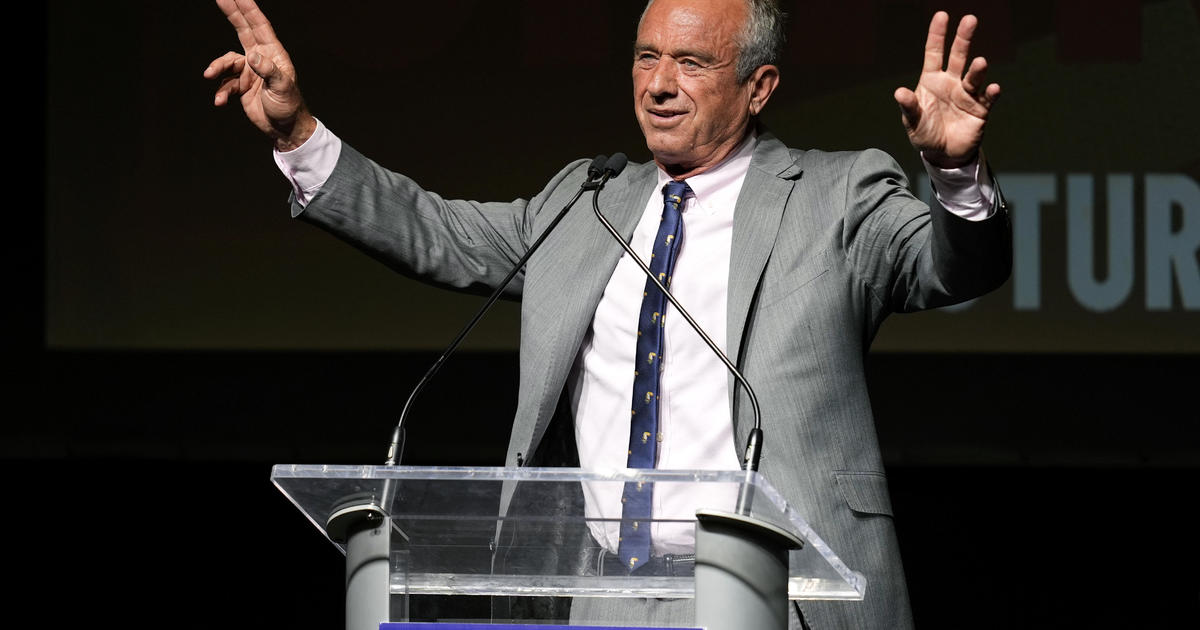WikiLeaks Documents Show Discussions On Iran, N. Korea
Washington is reeling after the website WikiLeaks released thousands of classified State Department cables Sunday, drawing condemnation from the White House.
Among the disclosures are that U.S. and South Korean officials have made game plans to deal with a possible collapse of the North Korean government; U.S. officials have candidly shared suspicions of Afghan government corruption; and China has conducted computer hacking attacks against the west.
But some of the most gripping disclosures involve Iran, as CBS News correspondent David Martin reports from the Pentagon.
When Mahmoud Ahmadinejad was elected president of Iran in 2005, the then commander of U.S. forces in the Middle East, Gen. John Abizaid, met with Arab military leaders. And according to one of the newly released diplomatic cables, "All agreed with Abizaid that Iran's new president … seemed unbalanced, crazy even."
That cable - one of a quarter million obtained and released by WikiLeaks, details a meeting in the United Arab Emirates - the beginning of a litany of demands from Arab countries just across the Persian Gulf from Iran for the U.S. to do whatever it takes to stop Ahmadinejad from building a nuclear weapon.
Iran's nuclear program "must be stopped," the king of Bahrain is quoted as saying. The king of Saudi Arabia repeatedly called on the U.S. to "cut off the head of the snake." But none of those leaders would say the same in public since it would put them on the side of Israel.
"The fact that these governments are exhorting and pushing the U.S. government to be more aggressive, to take military action - those revelations will not be popular in the streets of those countries in the streets of those countries, in the Arab world," CBS News national security consultant Juan Zarate told Martin.
When President Barack Obama took office, he unveiled a new policy of engagement with Iran, offering to talk with its leaders.
But at a meeting in Europe, an American envoy said "engagement alone is unlikely to succeed" and that the Obama administration was planning to surround Iran with economic sanctions and missile defenses.
To get China - which depends heavily on Iran for oil - to go along with sanctions, the U.S. apparently persuaded Saudi Arabia's king to guarantee China it would make up any oil it lost from Iran. After Mr. Obama cancelled plans to station anti-missile defenses in Poland -- defenses which Russia believed were directed against it - and place them on ships in the Mediterranean instead, Russia "indicated (its) willingness to move to the pressure track" - support sanctions, in other words.
"Some of these trades are embarrassing, some of them reveal deep interests that countries have and reveal things never intended to be public," Zarate said.
But the cables also make clear Iran still finds ways to beat the sanctions. U.S. intelligence warned Iran was getting advanced missiles from North Korea that could strike European capitals.
The documents detail the nitty gritty diplomacy of trying to head off the Iranian nuclear program - and they're bound to make for interesting reading in Iran.
© MMX, CBS Interactive Inc. All Rights Reserved. This material may not be published, broadcast, rewritten, or redistributed.



